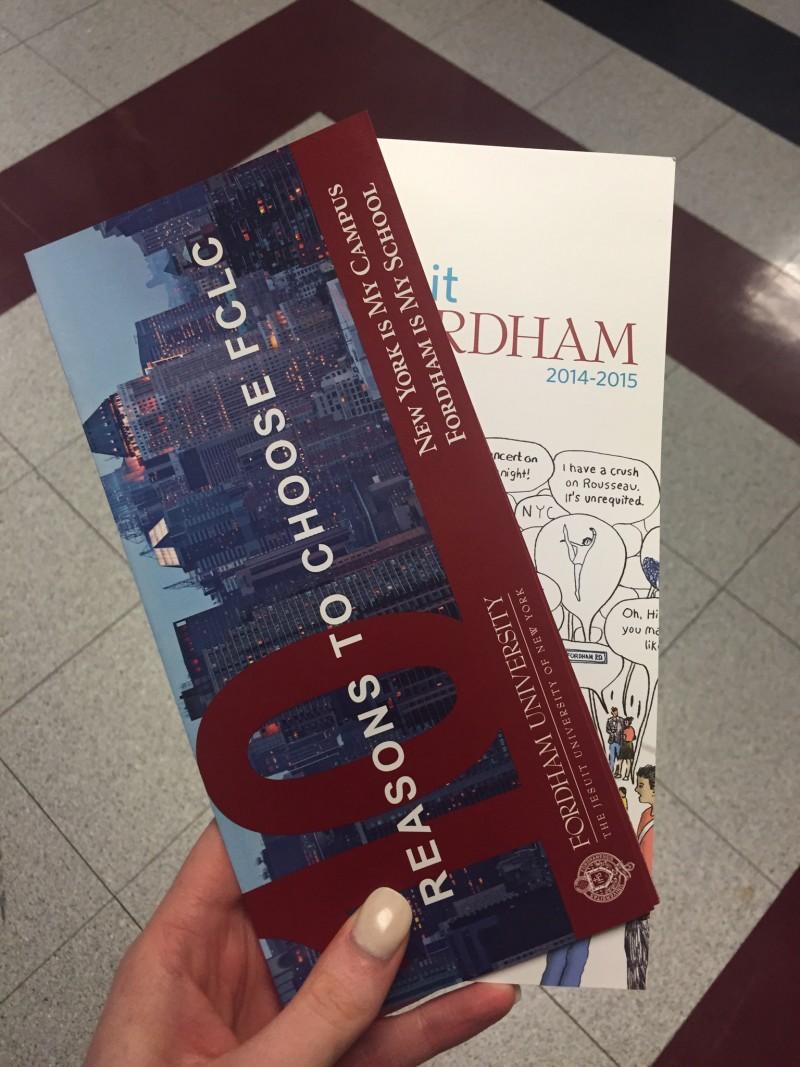Evaluating Our Evaluations
March 25, 2015
Evaluations of colleges and their various courses and teachers have become more and more important with the rise of social media’s prominence in the lives of this college-age generation. For better or for worse, every one of us faces an onslaught of personal qualms, self-help guides and Answer.com-esque sites, all centered around the promotion of individual opinions on a public and global scale. Fordham’s class evaluation system, our school’s most professional medium of opinion-based research, is widely unpopular among the student body, most of whom feel as if their thoughts could be better shared elsewhere. To keep the teacher complaints off YikYak and in the hands of people who could foster the growth of more beneficial classroom environments, the current evaluation form needs to be updated. Currently, it contains long, generalized ranking lists of Fordham’s courses and teachers. Although the purpose of this online quiz is to locate and fix problems within Fordham’s classes and teachers, the teachers cannot be expected to improve their ability to engage their students if Fordham’s own survey cannot.

Logistically, the format of the current course evaluation needs to be shortened. This will positively affect Fordham students’ engagement with the evaluation process, and it will ultimately result in more honest and clear reviews of courses and teachers. The goal of the course evaluations is to obtain enlightening testimonials that Fordham’s deans and administration can create a consensus from about the quality of their courses. First of all, the 1-9 ranking of specific classroom elements should be deleted entirely: its ambiguous and general categories confuse students, making for unclear input. Since these officials cannot be present during each class session to determine its success on their own, they should make sure that their aggregated information stems from honest and straightforward sources. The large number of multiple-choice ranking questions must be replaced by a smaller number of detailed short answer questions. This is the most basic change that Fordham’s administration can make to their evaluations.
Thus, when looking for specific areas for improvement, Fordham should look first at the professor section of their course evaluations. The anonymous style of the evaluations already allows for students to share honest feelings about their courses. However, to keep the students interested in sharing their most important and perhaps detailed opinions, in the professor section of the evaluations there should be specific questions such as, “In what specific ways do you see your instructor showing interest in his/her material?”, or “How does your professor’s means of conveying his/her material to you increase your personal interest in the material, and where, if anywhere, can they improve upon this?”. Just as a student’s interest in their education determines how well they succeed in school, the course evaluations should focus on how well the professors’ interest in their careers and the futures of their students is expressed.
In terms of information available to Fordham’s prospective students, the biggest problem lies in their accuracy and air of accuracy. This means that the professors and students providing their opinions should again be engaged and invested during the entire process. Also, the way that their testimonials are published should eliminate any obvious bias. First and foremost, the number of questions should be small, their wording should be succinct and specific, and the answers should be in a short answer format provided anonymously.
The types of questions on a general school evaluation should be no less detailed than the ones about the teachers, and they should ask about a broad spectrum of Fordham’s services. For example, possible questions could be: “How does Fordham’s on-campus housing environment compare to the classroom environment, and how can the less successful place be changed to better match the other?”, “How do Fordham’s instructors stand out from other educational professionals that you have worked with in the past?” and “How did/does Fordham’s small population, specifically seen in the teacher to student ratio, shape the growth of your education?”
All of these questions share many common traits, but most importantly, they are all personal and allow for a variety of answers. Plus, in three questions, many elements of life at Fordham have been touched upon. Other questions should focus on extra-curricular activities and means for social expression on campus, such as volunteering, journalism and the visual and theatrical arts.
Ultimately, Fordham should shape its course and school evaluations to accommodate the many unique perspectives of their students. If the people providing the opinions and information feel valued, then the information will be more accurate, honest and useful. Then, Fordham’s administration can shape their classes, professors and the reputation of the school most productively.











